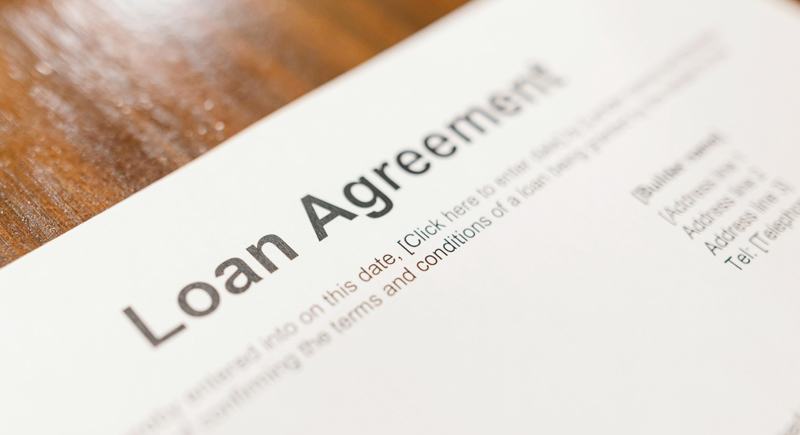12 Mistakes People Make When Taking Out Loan Against Their House
Attention Homeowners: Are you considering tapping into your home’s equity? Before you sign on the dotted line, hold up! We’ve uncovered the top mistakes that could turn your dream loan into a financial nightmare, like sneaky fees and foreclosure fears. Don’t be caught off guard—read on to discover the crucial dos and don’ts of taking out a loan against your house. After all, your home sweet home could be at stake.
Not Shopping Around for Better Rates

Credit: pexels
Many homeowners jump at the first loan offer they get, which can be a costly mistake. Interest rates and fees vary widely between lenders, and not comparing these can mean shelling out way more money in the long run. The Consumer Financial Protection Bureau recommends checking out loan terms from at least three different lenders to potentially save thousands of dollars. This simple step can lead to big savings and smarter financial decisions.
Ignoring the Impact of Loan Fees

Credit: freepik
Loan origination fees, appraisal costs, and closing fees can quickly eat into the equity you’re borrowing against. Homeowners often forget to factor these into the total cost of their loans. It’s essential to ask for a full disclosure of all fees and consider them carefully to truly understand how affordable the loan is. Ignoring these costs can lead to unpleasant financial surprises down the line.
Not Understanding the Loan Terms

Credit: pexels
Complex jargon and fine print can easily mask the true conditions of a loan. Critical elements like balloon payments, prepayment penalties, and adjustable interest rates can turn into financial traps if they’re not fully understood. Homeowners need to make sure they really grasp all the terms of their loan or, better yet, get advice from a financial advisor.
Underestimating the Risk of Foreclosure

Credit: iStockphoto
Borrowing against your home carries a significant risk: if you fail to meet repayment terms, you could lose your house. Surprisingly, some borrowers don’t take this potential consequence seriously. It’s essential to maintain a realistic view of your financial stability and have a contingency plan for repayments. Additionally, experts recommend setting aside an emergency fund and considering insurance options that can help cover payments during difficult times.
Borrowing More Than Needed

Credit: freepik
Many people fall into the trap of taking out bigger loans than they need, lured by the prospect of extra cash. This often leads to unnecessary debt and steeper interest costs over time. Borrowers should carefully consider how much they really need to meet their goals without risking too much of their home equity. Additionally, it’s wise not to overlook other financing options that might be more suitable and cost-effective.
Overlooking Other Financing Options

Credit: freepik
Home equity loans aren’t the perfect fit for every financial scenario. Sometimes, a personal loan or a line of credit might offer better terms. Homeowners should explore all the financial products available to them to make sure they pick the one that best suits their needs. It’s all about comparing options to find the most favorable deal.
Failing to Consider the Loan Duration

Credit: pexels
Long-term loans might tempt you with their lower monthly payments, but they also accrue more interest over the loan’s lifespan. To avoid overpaying in the long run, it’s crucial to choose a loan term that matches your financial goals and life situation. Always weigh the immediate benefit of lower payments against the total cost you’ll end up paying.
Neglecting Impact on Credit Score

Credit: pexels
Applying for a home equity loan can impact your credit score, especially if you don’t handle the loan wisely. Missing payments or maxing out your borrowing limit can lower your credit score, which might make it tougher to borrow in the future. It’s important to manage these loans carefully to keep your financial health in good standing.
Not Planning for Interest Rate Changes

Credit: pexels
Are you considering an adjustable-rate loan because of its appealing low initial rates? Keep in mind that these rates can jump significantly as time goes on. Homeowners should think ahead—can you handle future rate increases? If steady, predictable payments sound better, a fixed-rate loan might be the way to go.
Ignoring Tax Implications

Credit: freepik
Remember when the interest on home equity loans was always tax-deductible? Times have changed. Now, you can only deduct that interest if the loan was used to buy, build, or significantly improve the home by securing the loan. Many borrowers overlook these tax law updates, landing themselves in surprising financial situations. Make sure you’re in the know to avoid any unexpected tax implications.
Lack of Comparison Shopping for Insurance

Credit: pexels
Don’t forget to shop around for the best homeowner’s insurance rates when taking out a loan, which is a must. Many homeowners just stick with their current provider without checking if there might be better rates or coverage available elsewhere. A little comparison shopping can go a long way in saving you money and possibly improving your coverage.
Overlooking Future Financial Changes

Credit: pexels
Borrowers often overlook the possibility of future income changes that could affect their ability to repay a loan. It’s crucial to evaluate your financial stability and consider potential income fluctuations, particularly if you’re nearing retirement or your job prospects are unstable. Planning ahead and assessing these risks can help ensure that you stay on top of your loan payments without stress.
Misunderstanding Home Equity

Credit: freepik
Some borrowers get it wrong when it comes to understanding how much equity they actually have in their home. This can lead them to borrow against an inaccurately high value, which increases financial risk. Getting a precise appraisal and having a clear understanding of current market conditions are critical steps to ensure you don’t fall into this trap. Knowing your true home equity can save you from making costly mistakes.
Forgetting to Prioritize Debt Payment

Credit: pexels
Debt secured by your home, like a home equity loan, should usually be your top priority because you risk losing your home if you default. However, some borrowers slip up by putting unsecured debts, such as credit card balances, ahead of their home loans. This mismanagement can lead to serious financial jeopardy, including the potential loss of your home.
Not Consulting with a Financial Advisor

Credit: pexels
A major oversight many people make is not seeking professional financial advice. Financial advisors provide tailored insights specific to your unique financial situation, which can help you sidestep many pitfalls associated with home equity loans. Their expert guidance can be invaluable, especially when navigating the complex terms and conditions of these loans.